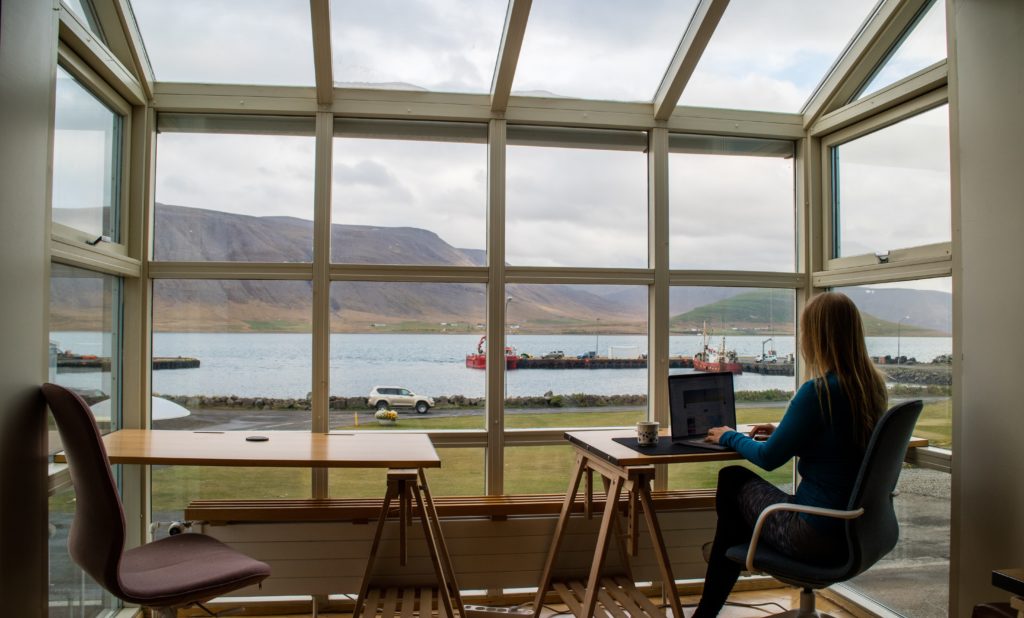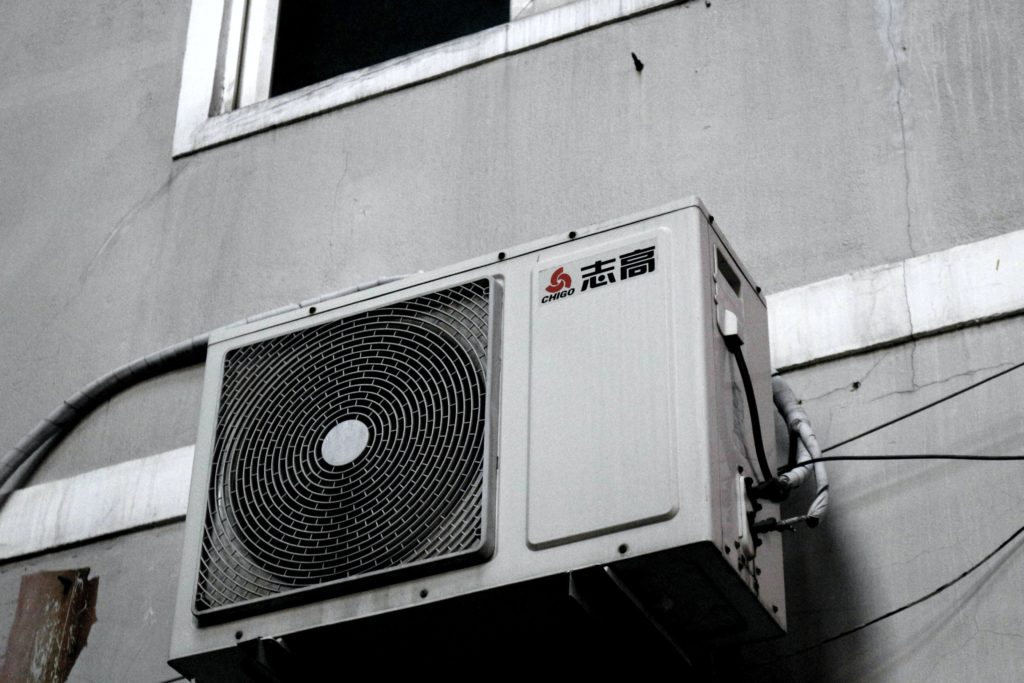Selecting the best location for your new business is a decision that you should not take hastily.
Your first consideration in terms of comfort and cost concerns is to go on a quest to find the perfect location for your business.
In this article, we are going to shed more light on the concept of business location selection and then go deeper to discuss the terms of business location analysis and business location strategy and talk about their importance on business location selection.
Business Location Analysis: Definition and Objectives
Location refers to the choice of the region and the selection of a particular location for establishing a business or a factory.
But the choice is made only after the cost and benefits of the various alternative sites are considered.
It is a strategic decision, which can not be changed once it has been undertaken.
If the location is only changed at a considerable loss, it should be selected according to its requirements and circumstances. Every plant is a case in its own right.
A businessman will attempt to find the most suitable or ideal location.
An ideal location is one where the cost of the product is kept to a minimum, with a large market share, the least risk, and the highest social gain.
It is the location of the highest net benefit or which offers minimum unit cost of production and distribution.

Business Location Analysis Definition
Location analysis is a dynamic procedure in which entrepreneurs evaluate and compare the suitability or otherwise of alternative sites for choosing the best site for a given client. It is composed of the following:
1. Demographic Analysis
This includes the analysis of population in the region in terms of total population (in numbers), age distribution, per capita income, level of education, occupational structure, etc.
2. Trade Area Analysis
This is the analysis of the geographic area that offers the company continued clientele.
This analysis would also consider the possibility of entering the trade area from alternate locations.
3. Competitive Analysis
This analysis helps in assessing the nature, location, size, and quality of competition in a given area of trade.
4. Traffic Analysis
To get a rough understanding of the number of potential customers passing through the proposed site during the working hours of the location, the traffic analysis is aimed at determining possible locations in terms of foot and car traffic passing through a site.
5. Site Economics
Under this section, alternative sites are analyzed in terms of establishment costs and operational costs.
Establishment costs are the costs incurred for permanent physical facilities but operational costs are incurred for running a business on a day-to-day basis, these are often called running costs.

Business Location Analysis Objectives
The location of a business needs to be determined while keeping the following targets in mind:
1. Holding Minimum Investment And Operating Costs
The primary goal of choosing a suitable location is to ensure minimal investment and lower operating costs.
This could be achieved by locating the business in a place where raw materials, labor, transportation, and power are readily, regularly, and sufficiently available.
2. To Make Sure The Business Operation Is Smooth
Another goal of the optimal location is to ensure the business operations are running smoothly.
This could be achieved if the business is located in a place where banking, communication, transportation, repair, and maintenance services are easily and regularly available.
3. To Improve Welfare Of The Employees
If the business is located where educational recreational, media and religious needs of the employees are met, they will definitely feel attached to the business and develop loyalty and commitment to it.
4. To Coordinate With The Government Policies And Regulations
Whilst selecting a location, the entrepreneur must ensure that their decision does not conflict with the policy of balanced regional development issued by the government.

Business Location Strategy Factors
Being in the right location is a crucial ingredient in the success of a business.
If a business chooses the wrong location, it may not have sufficient access to customers, workers, transportation, materials, etc.
Consequently, location often plays a significant role in the profit and overall success of a business.
A location strategy is a plan to achieve the optimal location for a company by identifying the needs and goals of the company and searching for locations with offerings that are compatible with those needs and goals.
In general, that means the company will try to maximize opportunities while minimizing costs and risks.
The location strategy of a business should adhere to its overall corporate strategy, and be part of that plan.
Therefore, if a company dreams and plans to become, for example, a global leader in fashion production, it must consider establishing plants and warehouses in regions that are consistent with its strategy and optimally positioned to serve its global clients.
Executives and managers of a company usually develop a business location strategy but companies however, may select consultants (or economic development groups) to undertake the task of developing a location strategy, or at least assist in the process, especially if they have little experience in location selection.
The standard formulation of a business location strategy includes the following factors:
- Facilities: Planning facilities requires deciding what sort of room a organization would be required, considering its short-term and long-term objectives.
- Feasibility: Analysis of feasibility is an assessment of the various running costs and other considerations related to the different locations.
- Logistics: Logistics assessment is the examination of the transport choices and costs for the manufacturing and warehousing facilities in question.
- Labor: Analysis of labor determines whether or not prospective locations can meet the labor needs of a company, given its short-term and long-term objectives.
- Community and Site: Evaluation of the Community and site includes understanding whether or not a business and a prospective community and site would be compatible in the long term.
- Trade Zones: Companies will want to consider the advantages that free-trade zones provide, which are closed facilities supervised by customs services where goods can be brought in without the normal customs requirement. There are some 170 free-trade zones in the United States and other countries have them too.
- Political Risk: Companies considering expanding and spreading to other countries must take political risk into consideration when establishing a business location strategy. Because a number of countries do not have stable political environments, if companies plan long-term operations in such countries, they must be prepared for upheaval and turmoil.
- Governmental Regulation: Companies can also face government barriers and severe constraints and regulation if they plan to expand to other countries. Therefore, when developing location plans, businesses need to investigate regulatory – as well as cultural – challenges in other countries.
- Environmental regulation: The various environmental regulations that could affect their operations at different locations should be considered by companies. Environmental regulation can also impact the relationship of a company with the environment surrounding a prospective venue.
- Incentives: Incentive negotiation is the process of negotiating land between a business and a group, including any incentives that the business may obtain, such as tax cuts. Incentives can play an important part in the selection of a site by a business.
Companies may also have to look at other aspects of prospective locations and communities, depending on the type of business. Based on these considerations, businesses are able to choose a site that best serves their needs and helps them develop a business location strategy and therefore achieve their objectives.

Requirements Of The Company
The initial part of developing a business location strategy is to determine what a firm will need from its locations.
These needs then serve as some of the primary criteria that a business uses to evaluate various options. Some of the basic criteria that an organization has to remember are:
- Size: A business has to determine the size of the property or the facility it requires for its actions.
- Traffic: If you are in the service business, your company must obtain statistics on traffic volumes or the number of pedestrians passing by a prospective location every day.
- Population: If you are running a service or a manufacturing activity, your company needs to analyze the population of prospective locations to ensure a sufficient number of potential clients (if a service business is in discussion) or a sufficient number of qualified or trainable employees. Additionally, manufacturers also benefit from being close to their customers, because customer proximity reduces shipping time and cost and increases customer responsiveness for the company.
- Total costs: Companies should determine the maximum total cost of a new location that they are willing to pay. Total costs include costs related to production, property, labor, taxation, services, and construction. More baffling costs, such as materials for shipping and costs of supplies transportation and the loss of customer responsiveness should also be considered if it moves further away from the customer base.
- Infrastructure: Businesses need to consider what their infrastructure requirements are going to be, including what modes of transport they will need and what types of telecommunications services and equipment they will require for their operations.
- Suppliers: All businesses need to consider the types of suppliers they will need close to their locations. Additionally, having nearby suppliers can help companies lower their cost of production.
In addition to these specific criteria, businesses have to take their particular specifications of prospective locations into consideration. These requirements may be consistent with their overall corporate strategy and corporate goals, and with their specific industries.
Business Location Strategy Trends
Over the last thirty years, globalization and technology have been the greatest drivers of change in the business location selection process.
In recent decades, location activity has been very high due to technological changes, economic growth, international expansion and globalization, and corporate consolidation, mergers, and acquisitions.
Price, infrastructure, labor characteristics, policy and political problems, and the environment are the top five location considerations for global companies.
The availability and quality of labor force, the quality and reliability of utilities, the quality and reliability of transportation modes, telecommunications systems, wage rates, worker motivation, government stability records and industrial relations laws are crucial sub-factors.
Other sub-factors such as patent protection, availability of management resources and specific skills, and cost of system and integration are becoming increasingly important.
Whereas wages and the environment of industrial relations are important factors in making decisions about multinational locations, the main determinant is by far the market size of the host country.
Moreover, global economic considerations have become dominant in the business location strategy, as businesses consider the advantages offered by various locations in terms of positioning themselves on international markets and against other competitors.
In general, when companies seek new locations, they strive to keep operating and start-up costs low, and so they often choose locations to achieve these goals in collaboration with economic development groups.
Companies also now expect to move faster than in the past to new facilities so they tend to focus more on leasing facilities than buying land and building new facilities.
Plus, by leasing equipment and facilities, businesses can migrate every few years if they are required by the market.

Mapchise Technology
Technology, in particular communications technology, has not only been a catalyst of change, but also facilitated the location selection process.
Managers can get initial information via the Internet and promotional software on alternative locations.
Site selection agencies are increasingly using Geographic Information System (GIS) technology, and email has become the most powerful and popular mode of communication in the quest and through negotiation of business locations.
Location databases have allowed businesses to do their own initial screening, thereby reducing their need to rely on economic developers to provide only very basic information and position details — such as commuting habits and workforce characteristics.
This is where Mapchise comes to play. Mapchise is a platform for analytics and location management, designed to expand and manage current and prospecting locations.
The primary purpose is intended for multi-chain prospecting and management.
Analytics Map is built on demographic analysis for prospect locations. This concept is the primary product and principal selling point of Mapchise.
It consists of three different sources of data: Demographics and Socio-demographic (still in production), Commercial Real Estate, and Residential Property. Socio-demographic is a categorization of different age groups, race, and income.
The main features of this product include:
- Commercial Real Estate Data (Data is for all of US)
- Competitor analysis
- Customized target demographic reports to clients needs
- Socio-demographic data
- Real estate data
- Traffic and regional market analysis
- Territory zoning to prevent canabolization
- Different layers customized to clients target demographic
Why Choose Mapchise?
- It provides all the data you need to open a location easily. The data is also proprietary so it won’t be found online for free.
- Task management system is designed and built for multi-chain stores and ease of use by corporate and store management.
- Fully Customizable analytics system designed for the users target market and target demographic, the map and data are built around users provided target market. After answering a few simple demographic questions, the map is fully customized to users’ input.
- Competition Analysis on the map
- Task management system is incorporated into the map for easier management of all locations tasks
How To Find The Best Location For Your Business?
Every business owner has to figure out how the location will (or will not) contribute to the success of a business — and select a spot according to it.
Although when you are looking for a space to house your business, there are many issues to consider, make sure you ask yourself these four important questions:
- Is location significant to the success of your business?
- What kind of location would be best for your business?
- How much rent you can afford to pay?
- Is the location you have in my mind appropriate for what you want to do there?
Is Location Significant To The Success Of Your Business?
The classic “location, location, location” advice for some businesses is right on the mark— location can bring the difference between feast or famine into reality.
But location may be far less important for other businesses than finding affordable rental space.
In fact, for some businesses, the location is almost irrelevant: service businesses that do all their work at the locations of their customers (such as roofers and plumbers) and businesses that have little public contact (such as mail order companies, Internet-based businesses, and wholesalers).
Picking a low-cost spot in an out-of-the-way location might be a benefit because these types of businesses can pass on rent savings to their clients and their profit margin.

What kind of location would be best for your business?
The key to choosing a profitable location is to evaluate the factors that will increase the amount of customers for your company. Ask yourself questions such as:
- Will customers be walking to your location?
- Will customers drive and, if yes, where will they park around your area?
- If you locate near other similar businesses, will you receive more customers?
- Will the reputation of the neighborhood or even of a specific building help you attract more customers?
Bear in mind that different types of businesses draw clients in different ways.
Foot traffic versus car traffic is one of the main distinctions.
For example, if you are opening an urban coffee shop, you can expect your customer volume to be the highest if there is plenty of pedestrian traffic nearby during the hours you plan to keep your business open.
On the other hand, the most suitable locale for an auto repair shop is a well-traveled street where many drivers will see the shop, and are able to easily pull into the lot.
Note also that it would be of benefit to your business to be around similar businesses that already attract the same type of customers you are planning attract.
For example, a women’s clothing store will certainly profit from being close to other clothing shops because many people who shop for clothes prefer to spend at least a few hours in a given location.
In the end, the perfect location for any business is a very individual matter. Spend some time finding out the consumer preferences you would like to draw to your business, and then pick the most suitable location that meets all your needs.
How much rent you can afford to pay?
Chances are that you will eventually rent out instead of buying a space for your business.
Most small businesses do not posses the funds to purchase real estate, and in any case it is not necessarily a smart idea to saddle the company with high interest payments.
When looking for a commercial space to lease, one obvious and important concern is finding a location that you can afford.
When preparing your financials (as part of your business plan), you would have calculated how much rent your company will be able to pay on a monthly basis, considering its expected sales and other expenses.
How to assess the average rent in any area?
Agents and brokers are excellent sources of rental cost knowledge in different neighbourhoods.
They will generally give you an average figure for the cost of commercial space per square foot per year in a given area. If you have this number, you can compare it to other spaces you are considering to rent.
If you have not already done so, check out the average rental costs in your area to make sure that the amount you have budgeted for rent makes sense, considering the cost of commercial space in your area, and how important your location is to your business.
For instance, if you decide that location is very important to the success of your business, make sure your budget would allow you to rent a good space given the average cost of space in your area.
If not, then your business plan may need to be reworked.
Is The Location You Have In My Mind Appropriate For What You Want To Do There?
The biggest consideration when choosing a business location is sometimes not where it is but what it is.
The building facilities must be suitable for (or adaptable to) your business. For instance, if you intend to open a coffeehouse, you need a place with limited kitchen facilities, at least.
Unless you are able to convince the landlord to put in the necessary equipment — plumbing, electrical work, and the rest — it is highly unlikely that it will be worth it to lay out the cash to do it yourself.
In short, if a building lacks something substantial that is essential for your business, you should probably look for something else.
Communications Wiring
Another consideration that is important for many businesses these days is having access to modern phone and other data lines that are required by the business.
When considering a particular space, ask the agent or the landlord for communications wiring details, such as whether the space is connected to a fiber optic network or wired for DSL or T1 line (high-volume Internet connections).
Even try to find out who the landlord sold the rights to the risers (wire conduits) in the building. A commercial landlord can not be involved in exclusive contracts with a single provider of telecommunications, such as MCI or AT&T.
It could however be expensive to bring in another provider of your choice.
Electricity and Air Conditioning
Besides high-tech communications wiring, when choosing a business space, do not overlook plain-old electrical power as an important consideration.
Make sure that every room you are looking at has enough power for your needs, both in terms of space outlets and the capacity of the circuits.
If you are going to be operating machinery or other electricity-hungry equipment, find out how much energy the circuits can tolerate from the landlord, and if a generator is available during power outages.
Moreover, if you are going to keep sensitive computer equipment in your office, ask the landlord how many hours of air conditioning will be included in the terms of your lease, and if necessary negotiate longer hours.

Parking
Another growing requirement for many businesses is sufficient car parking.
If a significant percentage of your customers come to your establishment by car and there is not enough parking at your chosen spot, looking elsewhere is probably the best alternative.
In addition, the city planning or zoning board can not allow you to function in a space with inadequate parking.
Zoning Rules
At last, the location that you choose for your business needs to be legally acceptable for whatever you plan to execute there.
A certain spot may be good for business, but you are asking for trouble if it is not zoned for what you are planning to do.
You must never sign a lease without being sure that you will be allowed to operate what you are planning in that space.
Your city planning or zoning board will determine what activities are allowed at a given location.
If your zoning board is having a problem with any of your business activities and you are not willing to work out a way to accommodate your company, you may need to find another space for your business.


